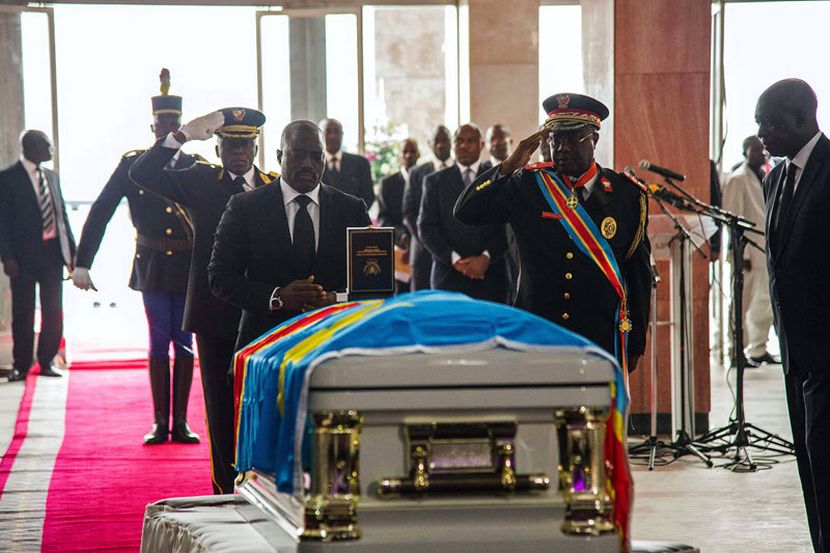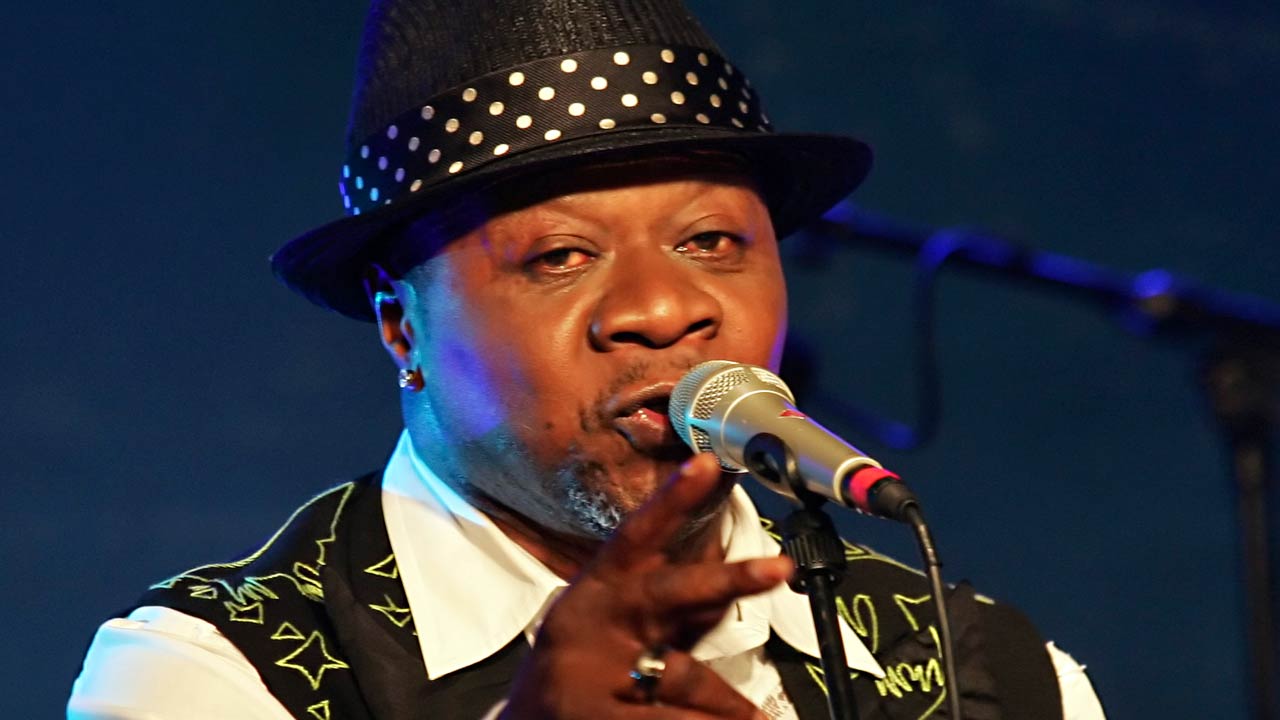Music has always been an essential part of Congolese culture, and one of the most prominent figures in Congolese music is Jules Shungu Wembadio Pene Kikumba, popularly known as Papa Wemba.
African music has a long and fascinating history that spans thousands of years. The continent is home to a diverse range of musical traditions, each with its own distinct characteristics and influences.
These musical styles have been shaped by various cultural and historical factors, including the traditions of local communities, the influence of colonialism and slavery, and the spread of modern technology and globalized media.
Papa Wemba was a Congolese musician, composer, and fashion icon, whose influence extended beyond music and into fashion and culture and played a pivotal role in shaping the sound of Congolese Rumba.
He was considered the king of Congolese Rumba and one of the most significant figures in the history of African music.
Born in 1949 in Lubefu, a village in the Kasai-Oriental province of the Belgian Congo, Papa Wemba started his musical journey as a teenager in the 1960s when he joined the band Zaiko Langa Langa.
He later formed his own band, Viva la Musica, and became one of the most influential figures in the Congolese music scene.
Papa Wemba was known for his unique style, which combined Congolese Rumba with elements of pop, rock, and electronic music.
He was also famous for his flamboyant fashion sense, which included colorful suits, fedoras, and platform shoes.
His music and style had a profound impact not only on the Congolese music scene but also on African popular culture as a whole.
This article focuses in depth on the life of this music legend.
Early Career of Papa Wemba
The rise of Papa Wemba to fame and influence can be traced back to his early years as a member of Zaiko Langa Langa, a music group he joined in the late 1960s.
The band was known for its innovative style, which combined traditional Congolese music with Latin rhythms and electric guitars.
Papa Wemba quickly became one of the band’s most popular singers, known for his powerful voice and energetic stage presence.
He soon went on to become a founding member of Isifi Lokole and Yoka Lokole, before briefly joining Afrisa International for a few months.
It was during this period that Papa Wemba developed a unique style that blended traditional Congolese rumba and soukous with African sounds, Caribbean rhythms, rock, and soul, creating a sound that was distinct and appealing.
In 1977, Papa Wemba left Zaiko Langa Langa to form his own band, Viva la Musica. The band quickly became one of the most popular in the Congolese music scene, thanks in large part to Papa Wemba’s dynamic stage performances and his ability to blend different musical styles.
It was his work with Viva La Musica that brought Papa Wemba international recognition and acclaim.
Taking his band to Paris in the early 1980s, Papa Wemba was able to infuse his music with an eclectic sound that was influenced by popular Western music, resulting in a style referred to as “Europop.”
This gave his music a European flavor and style that resonated with audiences worldwide, leading to his success and status as an influential musician.
Papa Wemba’s ability to blend various musical genres and styles is a testament to his skill and creativity as an artist.

His contributions to African music and the global music scene cannot be understated, as his work has inspired and influenced countless musicians across the world.
Papa Wemba’s Influence on Congolese Rumba
As aforementioned, Papa Wemba’s music was a unique blend of Congolese Rumba, pop, rock, and electronic music.
He was known for his ability to create catchy melodies and incorporate different musical elements into his songs.
His music was also characterized by his powerful voice and his use of multiple vocal harmonies. Papa Wemba’s influence on Congolese Rumba can still be felt today.
He helped to modernize the genre, introducing new instruments, rhythms, and song structures. His music was also influential in other African countries, where it inspired a new generation of musicians.
Papa Wemba’s Fashion Sense
Papa Wemba was also known for his flamboyant fashion sense. He was a trendsetter in the Congolese music scene, and his style was often imitated by his fans.
He was known for his colorful suits, fedoras, and platform shoes, which became his trademark. Papa Wemba’s fashion sense was a reflection of his personality and his music.
He was known for his confidence and his ability to command the stage. His fashion sense also helped to break down barriers between different cultures and genres of music, making him a true icon of African popular culture.
Controversies
Papa Wemba was accused of being part of a network that allegedly assisted hundreds of people in illegally immigrating from the Democratic Republic of Congo to Europe in February 2003.
As a result, he was arrested in Paris and held in prison while awaiting trial. After spending three and a half months behind bars, he was released upon the payment of a €30,000 bail, although some reports claimed the Congolese government had posted it on his behalf.
The experience of being imprisoned had a profound psychological effect on Wemba, who claimed to have undergone a spiritual transformation while in jail.
He recounted this episode on his album Somo Trop, released in October 2003, where he even sang about the day “God” paid him a visit in his cell in the song “Numéro d’écrou.”
In 2004, Wemba was found guilty, fined, and given a suspended prison sentence in France. He returned to the Congo in 2006.
Papa Wemba’s Legacy
Papa Wemba’s impact on the culture extended beyond his music, as he became the unofficial leader of La Sape, a youth subculture in Zaire that promoted high standards of personal cleanliness, hygiene, and smart dress, which were heavily influenced by the fashion centers of Paris and Milan.
He believed that well-groomed, well-shaved, and well-perfumed young people were a sign of a healthy society, and he emphasized this value among the youth of Zaire.
Papa Wemba’s influence on African culture was not limited to the Sapeur movement, but also extended to a new generation of musicians and performers.
For example, Priyan Weerappuli, leader of the Sri Lankan group Pahan Silu, cites Wemba as one of his greatest musical influences.
According to Weerappuli, he was deeply inspired by Wemba’s Soukous style and began experimenting with these rhythms in his own compositions.
Papa Wemba’s impact on African culture and music cannot be overstated. He not only helped to define and promote the Sapeur subculture but also inspired a new generation of musicians and performers.
His legacy will continue to inspire and influence African music for generations to come. Papa Wemba’s talents extended beyond music as he also had a successful career in film.
He played the male lead role in the popular Zairean film La Vie est Belle (Life is Beautiful) [1987], directed by Benoît Lamy and Ngangura Mweze.
He also contributed to film soundtracks, including Children of Men, Besieged, and Black Mic Mac, and is credited as the composer of scores for films such as Identity Pieces, Macadam tribu, and Life is Beautiful.
Although he only played minor roles, Wemba acted in a few other successful films during his lifetime. He even had a cameo appearance in the Belgian drama film Kinshasa Kids in 2012.
Also read: King Sunny Ade, What To Know About Nigerian Fuji Musician
Wemba also appeared in numerous music videos and recorded band performances, and was featured as himself in several documentary films, including The Importance of Being Elegant, The Real World of Peter Gabriel, and The African Rock ‘n’ Roll Years. These documentaries were widely acclaimed.
Death of Papa Wemba
Papa Wemba passed away on April 24, 2016, while performing at a music festival in Abidjan, Ivory Coast. He was 66 years old.
His death was a shock to the Congolese and African music communities, who mourned the loss of one of their greatest artists.
Papa Wemba’s legacy, however, lives on. His music continues to inspire new generations of musicians, and his influence on African popular culture is still felt today.

Many others have paid tribute to Papa Wemba’s legacy after his death in April 2016. Musicians such as Koffi Olomide, Manu Dibango, King Kikii, and Femi Kuti, as well as soccer star Samuel Eto’o, among others, have all given testimony to his lasting influence on them.
He also influenced a generation of Congolese and African musicians, and his impact can be heard in the music of popular contemporary artists such as Fally Ipupa and Diamond Platnumz.
Papa Wemba was a musical icon who left an indelible mark on Congolese and African music. He will always be remembered as an icon who broke boundaries and paved the way for African artists to showcase their talents on a global stage.
He was a trailblazer who pushed the boundaries of Congolese rumba and influenced generations of musicians.
His music and legacy will continue to live on for many years to come, and he will forever be remembered as one of Africa’s greatest musicians.
Source
https://en.wikipedia.org/wiki/Papa_Wemba#cite_note-bbc.com-1

